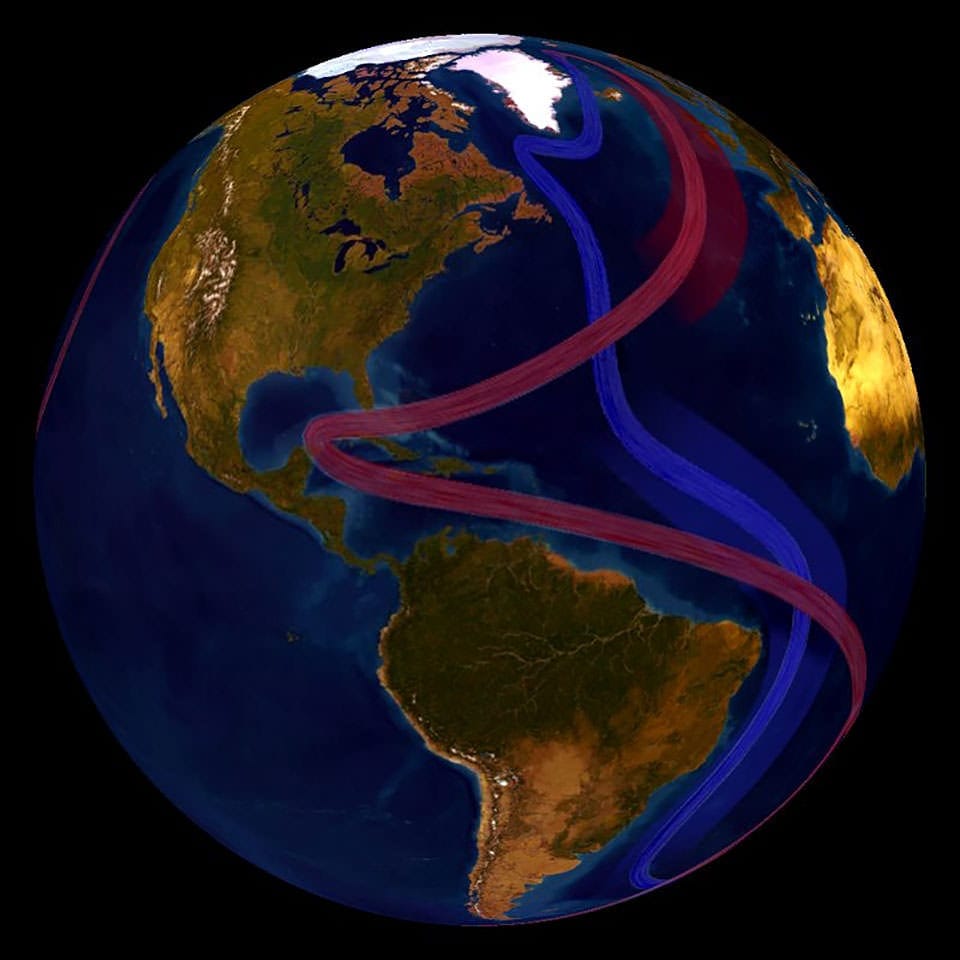2025 Earth Week Series: five key issues for the future of travel
“We are at a unique stage in our history. Never before have we had such an awareness of what we are doing to the planet, and never before have we had the power to do something about that.” - Sir David Attenborough

During Earth Week, we ran a five-part series on five key issues for the future of travel, and here is a summary of the discussions.
Climate change & renewable energy
The theme for Earth Day 2025 is “Our Power, Our Planet”. One of the most pressing issues around travel is probably its carbon footprint and its role in exacerbating climate change.
Travel often involves some form of transportation. Sustainable Aviation Fuel is still subject to scientific debate (especially if it can be worse than fossil fuels), and cleaner, hydrogen-powered planes are still projected to be decades away.
Whilst trains offer a greener alternative, they can be damaging to habitats. Train lines cut through vast landscapes, leading to habitat fragmentation and destruction. The fences that are often set up to protect train lines can become impenetrable death traps for migratory animals. Those who watched David Attenborough’s Asia series will probably remember the gazelle death traps along the trans-Mongolian railway.

Furthermore, renewable energies are not entirely green: batteries that power EVs require minerals that come from mining, and only 10% of solar panels are recycled, meaning millions of tonnes of toxic waste are heading for landfills, and hydropower dams can cut off and alter entire habitats, devastating wildlife.
Despite the emissions involved in green energy’s manufacture and setup, all types of clean energy do far less to warm the planet than fossil fuels. As a society, we should still pursue the transition towards renewable energy, whilst seeking to improve solar panel recycling and building in wildlife corridors so that climate change actions do not conflict with habitat conservation.
The Paris Agreement’s 2°C goal is an aspirational pursuit but a distant reality, especially with a significant lack of political will globally. We must plan for a post 2°C world and safeguard species from extinction. The renewable energy transition is an integral part of slowing down climate change, but we also need to strengthen ecosystem resilience under a changing climate, especially the resilience of our oceans.
Ocean resilience
Ocean circulation redistributes heat around the globe, shaping today’s climate. The Ocean has absorbed 40% of CO₂ since the industrial era, helping neutralise climate change impacts. But this ability is not limitless.
For eons past, the Earth’s climate has kept changing. The great thermocline circulation - the one century-long voyage of ocean currents - is driven by heat and salinity. The melting of glaciers and an influx of freshwater into the ocean freshens the seawater, changing its salinity, thus in turn impacting the strength and flow of ocean circulation. This then changes how the heat is redistributed globally, altering the climate in return. Changes to ocean circulation will also impact nutrient availability and sea water temperatures, altering marine ecosystems.

A healthy ocean, one that is rich in biodiversity, can better withstand external stressors. This means protecting ocean ecosystems from exploitative and polluting activities such as overfishing, mining, and waste dumping. This is where travellers’ actions can make a direct impact:
- Say no to captive cetaceans. They are often taken from the wild. These keystone species play a crucial role in balancing the Ocean’s ecosystem
- See marine life in their natural habitat, but NOT with operators who disturb them and deliberately get too close.
- Reduce seafood consumption - overfishing is the single biggest threat facing our oceans
- Do not participate in sport fishing, esp. protected species
- Rescue stranded marine life when encountering one during diving/snorkelling. Practice buoyancy to avoid kicking on reefs
- Think twice before booking a seaside resort - many were built at the expense of local reefs
All beings on Earth are intrinsically linked to the health of the ocean. Opening up Marine Protected Areas for commercial fishing, trawling the Southern Ocean and the high seas, mining the deep sea, taking everything from and dumping everything into the ocean will have existential consequences.
Environmental impact and social injustice
Travel carries a significant environmental footprint: water, food, and accommodation all consume resources. For some destinations, when tourists outnumber locals 2-3 times at peak season, places often lack adequate infrastructure to handle the demand.
The result of this often leads to mountains of rubbish and extensive pollution out of sight. During my recent trip to Baja California Sur, when tourists enjoy golf courses and swimming pools, locals are having their water rationed. Ever-increasing demands for private resorts and exclusive experiences in island countries such as the Maldives mean many local people do not have access to the seafront. Only 10% of young Maldivians (15-16 years old) can swim. Idyllic experiences can create widespread social injustices and exclusion.

Although community tourism often offers a sustainable and ethical alternative, it cannot influence political decisions such as infrastructure investment, city- or nation-wide waste management, or who the land is sold/leased to.
We’ve made a conscious decision not to feature certain destinations due to the unsustainable model, excess commercialisation, and widespread discrimination against local communities that cannot be effectively addressed, no matter who runs the experience. Unfortunately, a lot of such issues also carry a colonial undertone, especially if traced down to who owns and controls the infrastructure and resources.
The rise of travel influencers
Social media rewards engagement, good or bad. And travel influencers visiting places to do the most outrageous, superficial, or ignorant things can be a winning formula.
But this content can come at a cost. When those people ride elephants, pet tigers to show ‘bravery’, and make anthropomorphic videos of “cute” orcas in tanks - they are not only normalising animal performance, abuse and exploitation, they are actively undermining community efforts that want to put a stop to these activities. This is even more damaging when the activists and animal lovers, who live in these places, do not have a global platform to counter the narrative.
Travel influencers are changing the way we travel, from our imagination of a destination to how we plan to travel. But when cruelty and ignorance win the day, then travel can be weaponised to perpetuate exploitation, abuse and destruction.
Closing the value-action gap
Do one person’s actions make a difference? Do individual efforts matter when many corporations and governments are indifferent, or worse, undermining and blocking environmental protection? We have been going backwards on almost all planetary health indicators year on year, and it's hard not to feel hopeless and helpless at this trying time.
However, corporations or governments as entities do not make decisions or take actions - they all come from someone, are approved by someone, and are acted upon by someone. At the end of the day, it’s about whether people who care will show up: as employees, as consumers, as employers, and above all, as citizens of this planet.
For too long, everyday travellers have shouldered the burden of travelling responsibly: do the research and sift through a vast amount of information to reach a decision. Research shows that the value-action gap - i.e. when our actions do not align with our values - cannot be closed through having access to information alone. People need to be supported in making conscious travel decisions, and this is the reason we built Kodama Travel: to make it easy to book responsible travel experiences.
Economic actions
- We can stop animal abuse and performances by refusing to go to such establishments - rule of thumb: if an animal is doing sth that resembles humans, then it’s probably unnatural and built on cruelty
- Choose travel experiences and destinations wisely, especially nature activities and wildlife encounters.
- Do not consume endangered or protected animal products whilst on holiday (e.g. whale meat is often offered to tourists as a ‘novelty experience’)
- Do not engage with content creators who monetise animal abuse
- Operators who pay a decent living wage and take care of their environment often have to charge customers more for their services. If a travel experience is too cheap, someone, or something, is losing out and being exploited somewhere
Political actions
- Support organisations that fight for environmental justice, especially in areas beyond one person’s influence, such as the high seas, deep-sea mining, commercial fishing, and indigenous land protection.
- Vote for a livable planet. Make your voice heard - do not throw away your shot - or your vote.
I’d like to think we are doing this not only for our children, but for all lives that we share this planet with.

